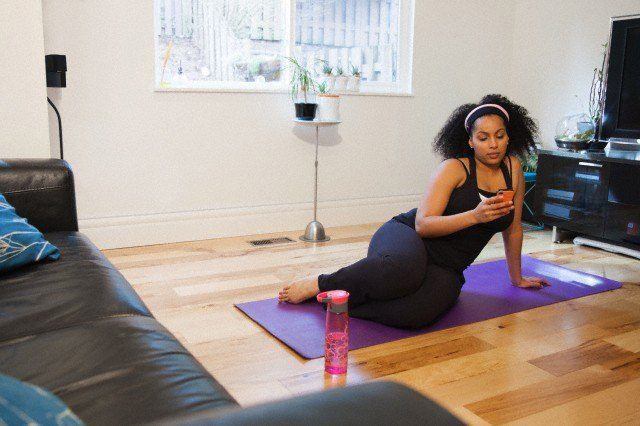- 1. Use a diary, calendar, planner, or electronic schedule
- 2. Make a list and prioritise your tasks
- 3. Delegate
- 4. Treat appointments as important
- 5. Schedule email and phone time
- 6. Multitask (where possible)
- 7. Limit social media
- 8. Get into a routine
- 9. Be proactive, not reactive
- 10. Take a break
- 11. Sleep well
- 12. Eat well
- 13. Learn from those who do it well
13 Things You Can do Today to be More Productive

- 1. Use a diary, calendar, planner, or electronic schedule
- 2. Make a list and prioritise your tasks
- 3. Delegate
- 4. Treat appointments as important
- 5. Schedule email and phone time
- 6. Multitask (where possible)
- 7. Limit social media
- 8. Get into a routine
- 9. Be proactive, not reactive
- 10. Take a break
- 11. Sleep well
- 12. Eat well
- 13. Learn from those who do it well
We are all guilty of uttering the words, “I don’t have time”. However, what we tend to forget is that we all have the same amount of time available to us. The difference is that those who get things done are just better at managing their time.
Whether you are working, studying, raising a family or doing all three, there are some key tips that will help you manage your time better and help you achieve more than you are achieving right now.
Are you ready?
1. Use a diary, calendar, planner, or electronic schedule
This is an obvious one, but it’s often overlooked because it takes up time — you know, the time you haven’t got? However, taking time to schedule appointments, meetings, study time and social events serves three purposes. Firstly, it clears your mind from trying to remember everything that’s going on and lets you focus on the actual ‘doing’ of the tasks. Secondly, if it’s in your diary, then you have already dedicated the time to attend to it. Thirdly, it enables you to see at a glance when your busiest periods are, or if you have scheduled too many things.
2. Make a list and prioritise your tasks
Scheduling too many things is something many of us are guilty of. If your ‘to-do’ list (you have got one, haven’t you?) seems overwhelming, it’s important to prioritise what needs to be done. Firstly, write a list of everything you need to do. Don’t try to prioritise just yet. Simply write it all down.
Read your list and decide which things only you can do and highlight those. The ones you have not highlighted you can obviously delegate to someone else! With the remaining items, prioritise them — the most urgent and important tasks at the top of the list. With each task, allocate a set time you will spend on it. That way, if you find yourself taking too much time on one particular task, you can move on to the next one, and come back to it later. If your list is still overwhelming, then ask yourself whether some of the tasks really need to be done right now!
3. Delegate
It’s important to realise that you don’t have to do everything! Learn the art of delegation and you can free up a whole lot of your time. This is particularly the case for household or office chores. Delegating also means outsourcing, so if time is tight and your computer is on the blink, call an expert rather than trying to fix it yourself. Similarly, if your garden is more like a jungle, consider getting a gardener to clean it up for you.
4. Treat appointments as important
As soon as you make an appointment write it in your diary. You should also add important information about it (e.g. address, directions, who you are meeting, what to take, etc.) so you have all relative information in the one place. That way, you won’t be scrambling five minutes beforehand, trying to work out where you have to go! Once these appointments are in your diary, treat them as important and only change them when you absolutely have to.
5. Schedule email and phone time
Whether we work, study or run a house, all of us need to check emails and make phone calls. The most productive way to do so, is to designate time to deal with them, rather than responding to emails or phone calls as soon as they come in. Obviously, the time needed to deal with emails and phone calls will vary from person to person, but a good start (particularly if you work), is to set aside 30 minutes in the morning, 30 minutes after lunch and 15 minutes before you head home. That way, you can focus on your other tasks without constant interruption.
6. Multitask (where possible)
Multi-tasking is not something that is advisable all the time. For example, we’re not recommending that you type your report while driving the car! However, multi-tasking can be appropriate in some instances. For example, you can read while on public transport, meet with someone over lunch, do the ironing while watching TV or catch up with a friend while going for a walk. There are always little ways that you can do more than one thing at a time.
7. Limit social media

Social media can be a major distraction.
There is no getting around social media. For most of us, it plays an important part in our day and may even help us with our work. However, it is a great time-waster if you let it be. You don’t have to give it up completely, but if you are time poor you do have to limit it. No amount of funny memes, YouTube videos or Candy Crush Saga will get your work done! Consider setting yourself a limit of a certain amount of time each day — and make sure you stick with it!
8. Get into a routine
Following a routine can make it easier to manage your time. Simply having set times to attend to things can be the difference between getting things done and not. You probably already have routines that you follow (e.g. your morning routine to get off to work, your bedtime routine or even your exercise routine, etc.). If you are struggling to fit in all you need to do, see if setting up a new routine will help.
9. Be proactive, not reactive
Many of us react to life. A typical example is picking up the phone when it rings — even if we don’t have time to talk. The secret of making the most of your time is to be proactive rather than reactive. This means planning ahead, anticipating problems and coming up with ideas to solve them before they occur. It can also extend to making sure your wardrobe is sorted for the week (rather than ironing clothes every morning), or doing a weekly grocery shop, instead of running to the supermarket every second day. The more proactive you are the less time you will spend in problem-solving mode and the more you will achieve.
10. Take a break
Life isn’t all about work and chores. As crazy as it may sound, to be more productive, you need to take a break. At work, make sure you take regular breaks and get away from your desk and computer. If you are studying, take some time away from the books and spend time with your friends. Doing things that make you happy not only improves your mood but also re-charges your batteries, making it easier to focus on tasks when it’s time to go back to them.
11. Sleep well

A good night’s sleep can do the world of good for your productivity.
If you are extra busy, it can be tempting to burn the midnight oil in the quest to get everything done. However, skimping on sleep will not help your cause and will actually reduce your efficiency. If you deprive yourself of sleep for too long, you will also lower your immunity, making it more likely that you will get sick — and if you are sick, then you can’t get anything done! To function at your best, aim for around seven to eight hours of sleep each night.
12. Eat well
Eating a balanced, healthy diet will also help you perform better and make you more effective with your time. Good nutrition is vital for brain function and energy levels. So make the effort and choose whole grains, fruits and veggies, lean protein and low-fat dairy products. Don’t forget to drink plenty of water as well.
13. Learn from those who do it well
Do you know someone who seems organised? Is there someone you work with who manages to get through more work than you thought possible? Perhaps you are friends with a mum who seems to juggle work and family without blinking an eye. If so, ask them how they do it and what their secrets are. Failing that, you may want to invest in some sound advice from a professional who deals in time management skills.
While you may not be able to conjure up more hours in your day, the above tips are sure to help you make the most of the time you do have.
Latest Articles
The Future of Counselling Jobs in Australia
Thinking about a career in counselling? You might wonder—is it a good career choice right now? Will...
How to Get Your Counselling Accreditation and Registration
Embarking on a counselling career in Australia offers a fulfilling opportunity to support people in...
What Are Counselling Microskills?
Microskills are fundamental communication techniques used to build rapport, actively listen, and gui...
Want to read more?
What Qualification Should You Take On? (New Guide)
Certificates, Diplomas and Bachelor degrees can be excellent ways to further your education and deve...
A Guide to Balancing Your Studies and Personal Life
While it’s important to prioritize your studies, focusing solely on them can negatively impact...
Be a Disruptor: How to Bring Your Business Idea to Life
Take your career to the next level and bring your business idea to life. Find out what skills you ne...
